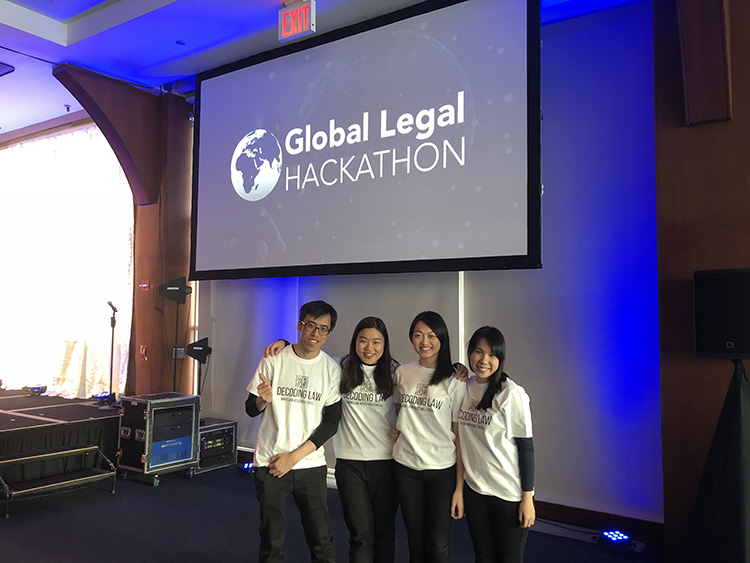Global Legal Hackathon announces winners

The Global Legal Hackathon announced its winners Saturday night in New York City.
Of the 14 finalists from around the world, four came out winners. Competitors were broken into two categories, those that were focused on the business and practice of law and those that worked to build access to justice and government solutions for the public. (A list of the finalists and their pitch videos can be seen here.)
Winning the private sector category was Revealu, an app from Hungary that helps people download their personal data from online service providers under the European Union’s General Data Protection Regulation, and LexLucid, a team from Colorado that rates online consumer contracts.
In the public service category, Decoding Law, a tool from Hong Kong that helps users navigate statutory language, and RightsNow App, a voice-activated legal information tool from New York, took top honors.
“Winning the [Global Legal Hackathon] was an amazing experience, and a huge opportunity for us to get global reach,” says Daniel Bihary, co-founder of Revealu. “The next step for Revealu is to gather investors to fund the initial development of the software and then to scale the product to cover our huge market. We see this win as a massive validation to our idea and intend to pursue revolutionizing data security one step at a time.”
Sondier.ai, a project from Berlin that proposes compromises in negotiations, and ANIKA, a lawyer-matching service from Australia, took runner-up spots in the private and public categories respectively.
For Sally Yiu, a member of the Decoding Law team, the experience was an example of law’s ongoing evolution around technology.
“The legal industry has always been described as very conservative, especially when it comes to the application of technology,” she said in an emailed comment. “I am indeed impressed to see so many talented minds collaborate and come up with feasible solutions to solve certain legal problems in society.”
Event co-organizer Aileen Schultz told the Artificial Lawyer blog, that this event was not the end, but the beginning of something.
“Beyond the annual hackathon, we have to ask ourselves how we can substantiate what has unfolded in the past few months; how can we take this energy and propel it toward real change,” she said. “We ask the global industry to help us carve out this future of the Global Legal Hackathon, because what happened here certainly wasn’t final; there’s a whole lot more to come.”
Building something sustainable from a hackathon is often a challenge, which is encapsulated by one of the winning teams.
“In terms of what this means for the company, we’re not sure,” explains Otto Hanson, a team member of LexLucid and an attorney in Denver. “Co-founder Katherine Snow and I both work as corporate associates in big firms in Denver, and, believe it or not, we really like our jobs.”
He explains that the members of LexLucid’s engineering team also have day jobs they enjoy. So, while their project tackles a big problem at a ripe moment, its future is uncertain.
“Time will tell!” Hanson says.
The crowning of the four winning teams comes after two previous rounds of competition, which began with a hackathon that took place in 40 cities in 22 countries and included an estimated 5,000 participants, Robert Ambrogi wrote at LawSites.

The Decoding Law team: Raymond Luk, Alison Li, Sally Yiu and Edelweiss Kwok.



